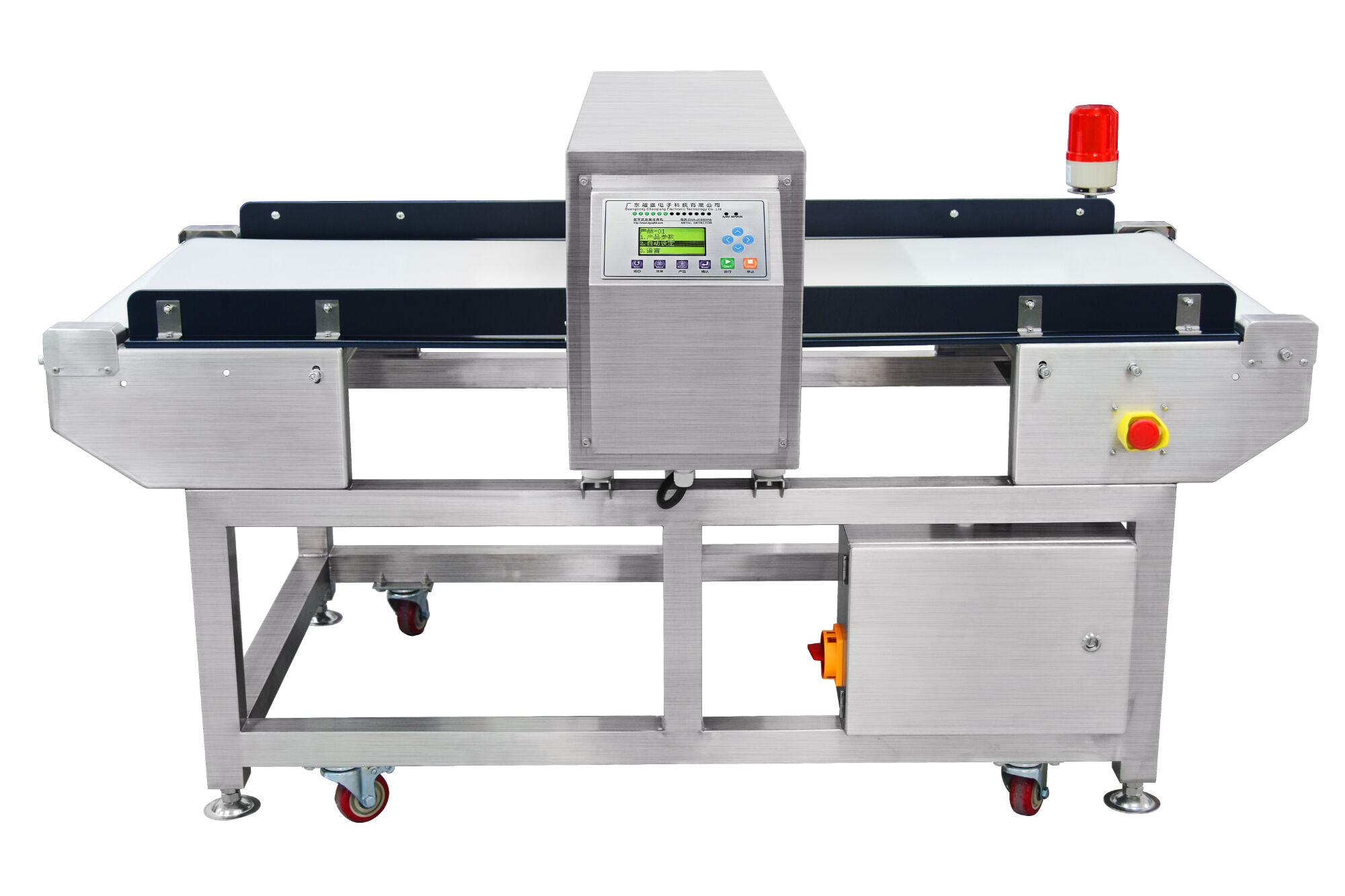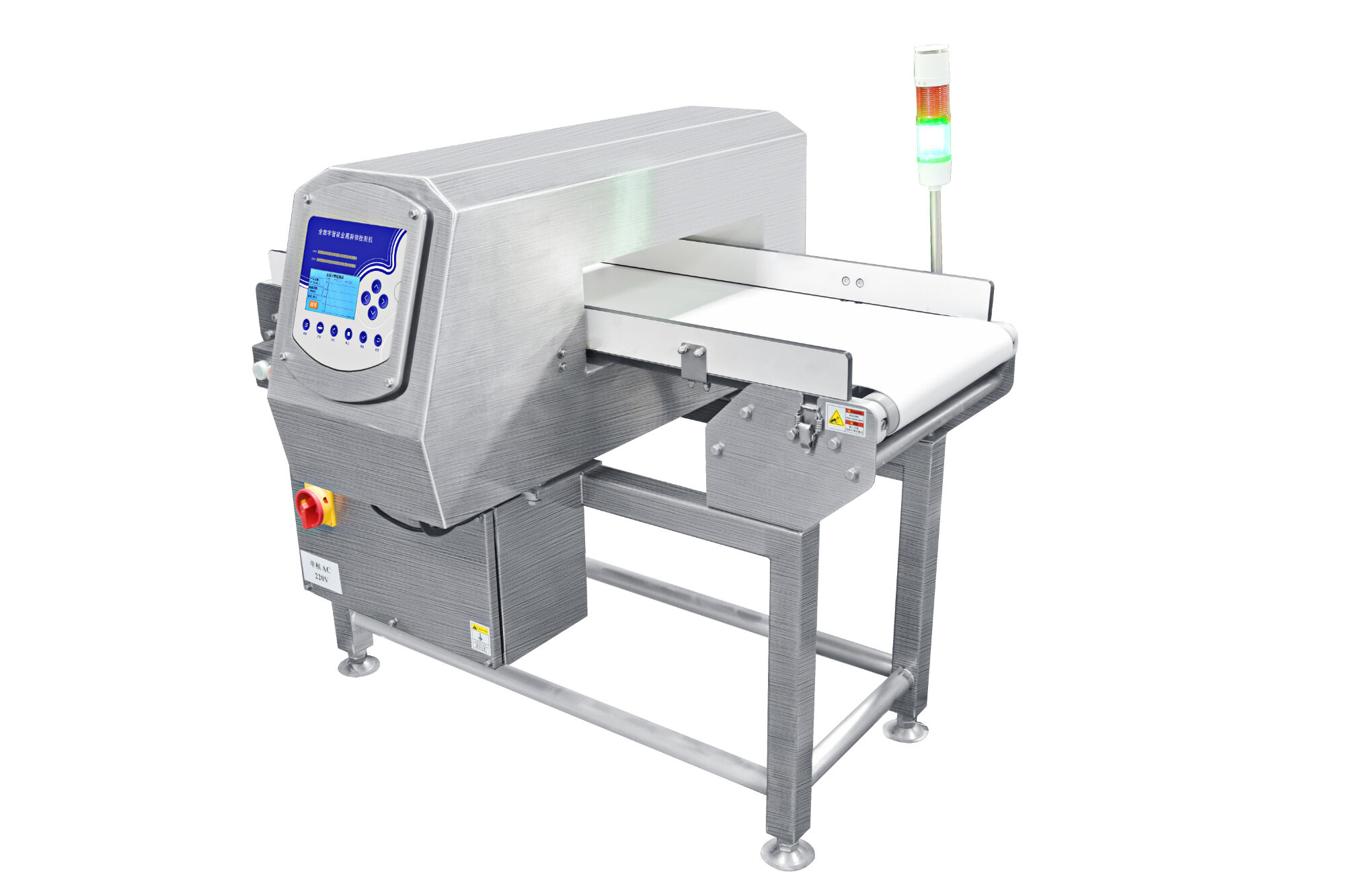Equipment in food processing plants tends to wear down over time, sometimes causing metal bits to end up in the food we eat. Things like mixers, those big slicing machines, and packaging equipment all take a beating day after day. The constant running wears them out, creating tiny metal fragments through normal friction and corrosion. What happens next? Well, these worn parts start breaking apart bit by bit until small pieces actually get mixed into the product stream. Industry data shows this equipment breakdown is one of the main culprits behind metal contamination problems. Research from the Journal of Food Protection found about seven out of ten metal contamination cases come directly from worn machinery. That's pretty staggering when you think about how many products pass through these systems every single day.
Food ingredients often come with unwanted metal bits mixed in, which can be pretty dangerous for consumers. Think about seeds, grains, or those flavor enhancers added during processing – they sometimes pick up metals from farming practices or mishandling along the way. To stop this problem right at the start, companies need to really check their suppliers thoroughly and put strict quality controls in place. What does this mean practically? Inspecting shipments carefully, testing samples regularly, and working closely with farms and warehouses. A recent look at food safety data showed that almost 30 percent of all contamination problems actually started with these raw materials. That's why manufacturers must keep up the good work on checking and preventing metal contamination – not just because regulations demand it, but also to protect brand reputation and keep customers coming back.
The environment around food production facilities matters a lot when it comes to contamination risks. Things happening outside the factory walls, like construction projects nearby or buildings not getting regular maintenance, often bring metal particles into the area. When there isn't enough supervision, those tiny bits of metal find their way into the production line, making contamination problems even worse than they already are. The transportation and storage stages aren't safe either. Sometimes metals from packaging materials or equipment get mixed into food products while they're being moved or stored. Environmental health departments have recorded plenty of incidents where bad building maintenance combined with ongoing construction work caused serious contamination issues inside food processing plants. That's why keeping production areas clean and properly maintained remains so important for anyone trying to keep contamination at bay.
Eating food tainted with heavy metals isn't just bad news for our bodies but can actually cause serious health problems over time. We're talking everything from sudden poisoning episodes to lasting damage that shows up years later. Lead and cadmium are particularly dangerous culprits here. These metals mess with brain function and development, which hits kids and pregnant women especially hard. Research has shown people exposed regularly to these substances often end up with memory problems, trouble thinking clearly, and actual physical harm to organs like kidneys and liver. The World Health Organization puts it pretty bluntly: even tiny amounts of lead in the system can wreck a child's developing brain, leading to lower test scores and all sorts of learning struggles. With all this evidence out there, food producers really need to step up their game when it comes to keeping contaminants out of what we eat.
The food manufacturing industry has to deal with strict rules about metal contamination from organizations like the FDA and other global regulators. These regulations actually specify exactly how much metal is allowed in different types of food products to keep people safe. But keeping up with all these requirements isn't easy at all. Manufacturers constantly need to check their processes, update equipment, and train staff as new standards come into effect every year. When companies fail to follow these rules, they risk big problems. We've seen numerous cases where entire product lines had to be pulled off shelves because tiny bits of metal got into the food. This not only costs millions in losses but also hurts customer trust. According to some industry reports, around 30% of all food recalls last year were due to metal fragments found in products. For small businesses especially, this represents a major challenge in balancing quality control with operational costs while trying to build brand loyalty among consumers who demand safer food options.
Manufacturers who face metal contamination problems end up paying a heavy price financially. The immediate expenses alone can be staggering when products get recalled, regulatory fines kick in, or lawsuits start flying around. Take the recent case where a major snack company had to pay over $5 million after finding metal fragments in their chips. Then there are all the hidden costs nobody talks about but everyone feels. Brands take serious hits to their reputation when customers lose trust, and rebuilding that takes time and money. Food processors know this all too well after contamination scandals send their sales plummeting by 30% or more within months. These real world experiences make it clear why strict quality checks aren't just good practice but essential survival tactics for businesses looking to protect both their bottom line and long term viability.
For small food manufacturers looking to keep things safe, the YW-808 Food Metal Detector works really well. What makes this model stand out? It can pick up on tiny metal bits that might otherwise slip through during processing, which means safer products going out the door. The size matters too since it fits right into most compact production setups without taking up much space or slowing things down. Operators who've used the YW-808 report noticeable improvements in what comes out of their facilities. One bakery owner mentioned finding several pieces of metal fragments that would have gone unnoticed otherwise. For businesses concerned about meeting those tough safety requirements while keeping costs manageable, this detector offers peace of mind without breaking the bank.

Designed for fast-paced industrial settings, the YW-818 Food Metal Detector handles quick detection tasks without slowing down production lines. What makes it special? Its solid technical specs allow for fast product movement through the system while still catching even small metal fragments accurately under different working conditions. Many big food processors have adopted this model because they find it dependable and efficient day after day. Real world data from these facilities shows better overall performance and fewer cases of contamination compared to older systems. The YW-818 keeps up with demanding factory operations too, spotting harmful metals without creating bottlenecks or wasting time on false alarms that disrupt workflow.

The YW-918 Food Metal Detector uses advanced multi zone detection tech that makes it better at finding all sorts of metal contaminants. This matters a lot on production lines handling different products since there's always a higher chance something gets mixed up between batches. The multi zone approach helps keep food safe even when things get complicated in manufacturing settings. Tests show this detector outperforms others in spotting metal bits, and industry professionals really like how it protects various product streams from contamination risks. Manufacturers relying on the YW-918 can count on solid protection for their food safety protocols without worrying about missed detections.
